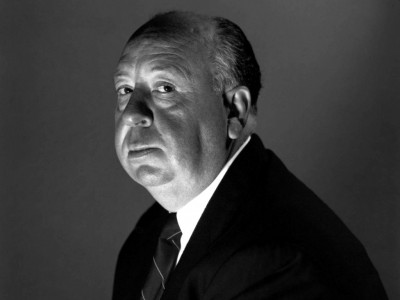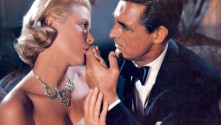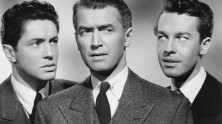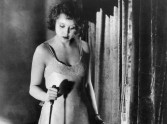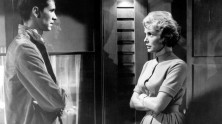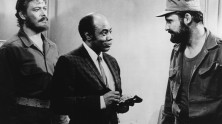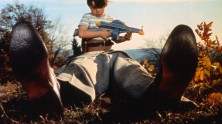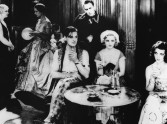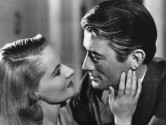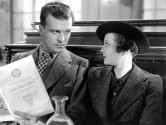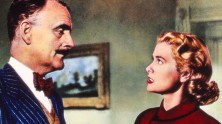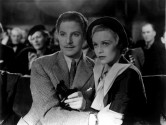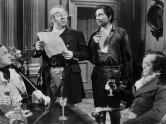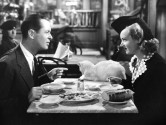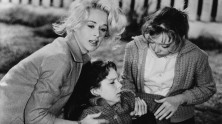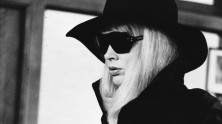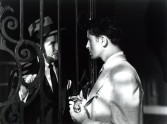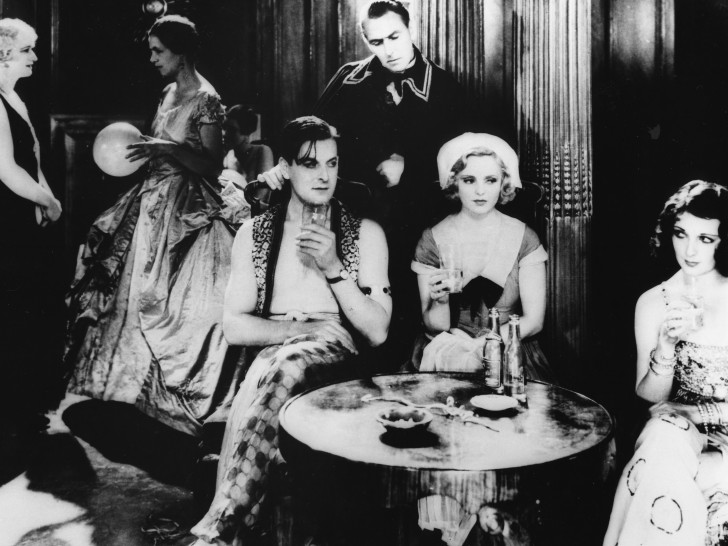
The Secret Agent
Rich and Strange
Musing over the disappointing box office of Secret Agent, a film he otherwise liked, Hitchcock told Truffaut,“There was too much irony, too many twists of fate.” Those same qualities make it one of the most enduringly complex features of his Gaumont-British years, a film that Raymond Durgnant saw as anticipating the “eerie and unwelcome alloy of freedom and guilt” found in the auteur’s best films. Based on Somerset Maugham’s Ashenden stories, the film serves as a veritable compendium of Hitchcockian motifs: from a fake funeral to a falsified marriage, a spy ring operating out of a chocolate factory to a murder observed through a telescope, a seemingly telepathic dog to an expired organist. Two English agents played by John Gielgud and a curly-haired Peter Lorre track their target by a telltale missing button, but in this case the irresistible Hitchcockian premise proves gravely misleading. Madeleine Carroll is the phony wife whose eagerness to play detective curdles just as quickly as the plot’s farcical tone.
Fed up with the evening commute and steak-and-kidney pie, Henry Kendall complains to his wife that he wants more from life. Rich and Strange may be relatively free of conventional suspense, but Hitchcock gives the characters plenty of reason to watch what they wish for: an exotic cruise instigates a prolonged crisis of faith. Initially a box office disappointment, the film’s steely-eyed study of a relationship under pressure now seems to directly anticipate later triumphs like The Man Who Knew Too Much (1956) and Marnie. Hitchcock deftly interweaves his protagonists’ blinkered emotions and cultural values in crafting the cautionary tale about the moral danger of pursuing life in fantasy—a peculiar message to find delivered in a film entertainment, to be sure, but one close to the heart of Hitchcock’s knotted art.


